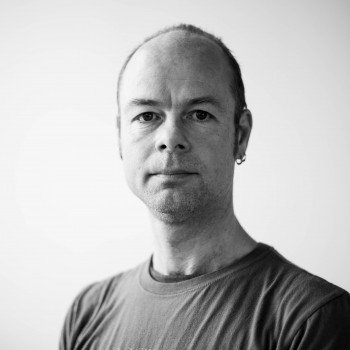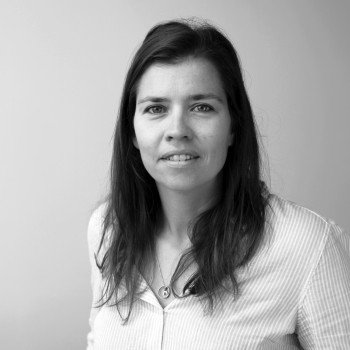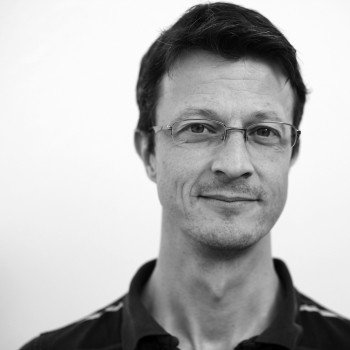
Meet the FABLE Norway team
The team is led by CICERO Center for International Climate Research in Oslo. CICERO is internationally recognised for its research on the climate effects of anthropogenic emissions, society’s response to climate change, and the formulation of international agreements. Because of its national role in promoting knowledge about climate change, CICERO is in constant dialogue about the responses to climate change with public and private decision makers, government administration and civil society.
The team's main areas of interest have been in the sustainability debate in Norway, balancing conflicting issues in Norwegian food production and diets, clarification of debate points, exploration of alternatives to existing non-sustainable production methods, and debate-shifting.
Models used by the team: FABLE Calculator.
Transforming food and land-use systems in Norway
Norway's food and land use systems face several challenges in achieving sustainability. The difficult endowment for food production poses a significant problem, as only a small share of Norway's land area is suitable for cultivation, and the country's climate is challenging with a short growing season and low temperatures. As a result, Norway relies heavily on imports of certain major food categories, as well as feed and other farm inputs.
Competition for cultivable land with other land uses raises concerns about food security and path dependency. For example, the prioritization of ruminant livestock production is more feasible in Norway's conditions, but may come at the expense of environmental sustainability. Food waste and the share of imported vegetables and fruit are also considered priority issues in the food system.
Norway has extensive forests, with many managed for long-term production. Even though deforestation is not a major issue, biodiversity is affected by other land-use changes. Wetlands in Norway have been drained and converted to other land uses for decades, but a newfound appreciation for their significant carbon storage has sparked renewed attention and discussion surrounding their preservation.
Key national objectives and targets
- Food waste: Voluntary industry targets have been set in various stages of the supply chain, with some level of success. However, these targets are still falling short of expectations.
- Increased local production: Norway aims to increase the domestically produced share of vegetables in the Norwegian diet and improve livestock production through feed changes, as well as reduce reliance on imported feed via alternative protein sources.
- Protection of productive soils: Policy targets exist, but efforts towards this goal are currently voluntary.
- Carbon neutrality: Norway has set a target to become a 'low-emissions society' by 2050.
- Food security: Norway aims to achieve 50% self-sufficiency in terrestrial food products, but no target year has been specified yet.
Publications
- Van Oort, B., and Daloz, A. (2024). FABLE Scenathon 2023 Pathways for food and land use systems in Norway. Paris: Sustainable Development Solutions Network (SDSN). 10.5281/zenodo.11550428
- Blog. We must eat what we grow, and grow what we eat.
- van Oort, B., Daloz, A.S., Andrew, R., Farstad, F.M., Guillen-Royo, M., Hermansen, E.A.T., Holmelin, N.B., Kalbekken, S., Orlov, A., Sillmann, J., Skagen, K., Ytreberg, N., in review. Ruminating on sustainable food systems: Bridging the gap between local and global perspectives. Nature Sustainability.
- van Oort, B., Andrew, R., 2016. Climate Footprints of Norwegian Dairy and Meat – a Synthesis. CICERO, Oslo CICERO Report 2016:06. Available at: http://hdl.handle.net/11250/2397086.
- van Oort, B., Andrew, R., Holmelin, N.B., 2023. The consequences for climate of meat consumption, in: Mayerfeld, D. (Ed.), Our Carbon Hoofprint: The Complex Relationship Between Meat and Climate. Springer, ISBN: 978-3031090226.
- van Oort, B., Holmelin, N.B., 2019. Klimagassutslipp fra norsk mat. CICERO, Oslo.
- Farstad, Fay Madeleine, Erlend Andre Hermansen, Bård Sødal Grasbekk, Kristiane Brudevoll, Bob van Oort (2022) Explaining radical policy change: Norwegian climate policy and the ban on cultivating peatlands. Global Environmental Change, 74: https://doi.org/10.1016/j.gloenvcha.2022.102517.
- Dannevig, H., Bay-Larsen, I, van Oort, B. and Keskitalo, C. (2015) Adaptive capacity to changes in terrestrial ecosystem services amongst primary small-scale resource users in northern Norway and Sweden. Polar Geography 38(4):271-288. Accessible via http://dx.doi.org/10.1080/1088937X.2015.1114533.
- Jansson, Roland, Christer Nilsson, E. Carina H. Keskitalo, Tatiana Vlasova, Marja-Liisa Sutinen, Jon Moen, F. Stuart Chapin III, Kari Anne Bråthen, Mar Cabeza, Terry V. Callaghan, Bob van Oort, Halvor Dannevig, Ingrid A. Baylarsen, Rolf A. Ims and Paul Eric Aspholm (2015) Future Changes in the Supply of Goods and Services from Natural Ecosystems: Prospects for the European North. Ecology and Society 20(3):32. http://www.ecologyandsociety.org/vol20/iss3/art32/.
- Uleberg E, Hanssen-Bauer I, van Oort B and Dalmannsdottir S (2014) Impact of climate change on agriculture in Northern Norway and potential strategies for adaptation. Climatic Change 122(1-2):27-39. https://doi.org/10.1007/s10584-013-0983-1.
- Orlov, A., Daloz, A.S., Sillmann, J. et al. Global Economic Responses to Heat Stress Impacts on Worker Productivity in Crop Production. EconDisCliCha 5, 367–390 (2021). https://doi.org/10.1007/s41885-021-00091-6.
- Andresen et al. (submitted: European Journal of Nutrition) Environmental impact of the current diet and two healthy and sustainable scenario diets among young children in Norway.
- Ytreberg et al. (Submitted: Sustainable Production and Consumption) Mapping and assessment of digital climate nudges in Nordic online grocery stores.
- Harwatt, H. et al. (2022) Overview of food consumption and environmental sustainability considerations in the Nordic and Baltic region. 108. Nordic Nutritional Recommendations 2022 (NNR22) background paper.
- FABLE (2020). Pathways to Sustainable Land-Use and Food Systems. 2020 Report of the FABLE Consortium. International Institute for Applied Systems Analysis (IIASA) and Sustainable Development Solutions Network (SDSN), Laxenburg and Paris. 10.22022/ESM/12-2020.16896.. Norway chapter.
OP-ed selection:
- Gunnhild Stordalen and Bob van Oort (07.07.2022). Newspaper debate about sustainability, meat production and consumption – In: Nettavisen (newspaper) Gunhild Stordalen, Jenny Klinge | En iskaffe, Jenny? (nettavisen.no).
- Arene Grønlund, Bob van Oort, Klaus Mittenzwei (22.01.2022). Self-sufficiency and diet. In: Nationen (newspaper), Norway. Selvforsyning og kosthold - Nationen
- Klemetsen, Marit, Bob van Oort (2022) Kjøttforbruket må reduseres.
- Andreassen, Hege Fantoft, Bob van Oort, Nina Bergan Holmelin (2022) Sårbar matforsyning. KLIMA, 07.03.22.
- Reed, Eilif Ursin, Fay Farstad, Erlend AT Hermansen, Bob van Oort (2021) Jordbruksoppgjøret: Mat, penger og noe klima. KLIMA, 10.05.2021.
Recent activities
The team has undertaken substantial activity linked to food and sustainability questions through interviews with national press, stakeholder meetings, presentations, and podcasts.
- Bob van Oort (12.06.2024) participates in a debate session on the World Bank's new report, A Recipe for a Livable Planet.
- Bob van Oort (17.03.2023). Design Hackaton – Designing for climate friendly food in Norway. Oda, Oslo, Norway.
- Bob van Oort (10.03.2023). Live Podcast with Rethink Food on sustainable food systems.
- Bob van Oort (27.09.2022). Breakfast seminar “What is a climate friendly diet and what does it mean for Norwegian agriculture?” Kulturhuset, Oslo, Norway.
- Bob van Oort (03.05.2022). PLATO explains: Public procurement of food.
- Bob van Oort (21.04.2021). “Talk about Food” for foodsystem transitions project.
- Bob van Oort (22.02.2023). NRK Super (Norwegian TV & radio channel aimed at children) contribution on sustainable food. Topic 6. CICERO, Oslo, Norway. (00:02:58)
- Bob van Oort (23.11.2022). Launch of Norwegian Science Academy report on Pathways to a more sustainable food system in Norway – contributed as expert in reference group.
- Bob van Oort (18.11.2022). Hackaton Amsterdam Data Collective – How to design databases in support of a food system transition?. MS Teams/Amsterdam, Netherlands.
- Bob van Oort (15.11.2022). Designing for a planet friendly diet: Design forum presentation (in english): Nº 147 :: Planet-centric, by design (ixda.no). (00:54:00).
- Bob van Oort (03.11.2022). Stakeholder workshop with EAT and various food system actors on holistic food system thinking in Norwegian food- and agricultural policy. Geitmyra Matkultursenter for barn, Oslo, Norway.
- Bob van Oort (2022). Contributions to the NNR22 (Nordic Nutrition Recommendations 2022) process and background papers on incorporation of environmental sustainability in the Nordic dietary recommendations. Youngs, Oslo, Norway.
- Bob van Oort (2020). Cookbook contribution: “Climate and Food” in Dahlgren (2020) Klima og mat. In: En skikkelig digg kokebok 2. (ed: H-L Dahlgren).


